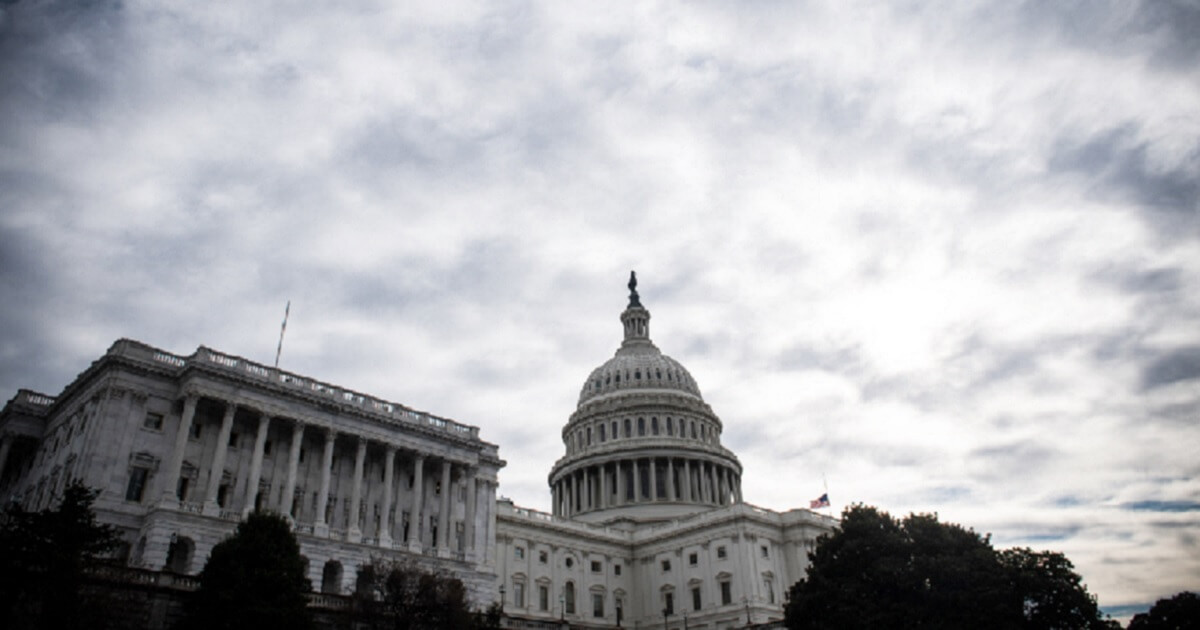
The Truth About What Actually Shuts Down During a Gov't Shutdown Is Depressing
So, as you’ve no doubt have heard if you’ve turned on a TV, radio, smartphone, computer or telegraph line these past few days, the government could shut down this coming week if President Trump doesn’t get funding for the border wall.
If you listen to the media, a shutdown is a political failure of epic proportions. If you’re the Democrats, a potential shutdown is all Trump’s fault. If you’re the Republicans, the shutdown would happen because the Democrats aren’t serious about border security. If you’re buying Christmas presents for Ron Swanson, a shutdown is the perfect stocking stuffer.
But wait. Do you know what really happens when the government “shuts down?” It’s somewhat depressing — and a sign that maybe you’d be better off buying Ron a bottle of Lagavulin.
Keep in mind, first of all, that this is only a partial government shutdown, considering that funding for a few agencies is what’s on the table here. However, according to CBS News, here’s what would close if the shutdown occurred:
“The U.S. Department of Agriculture would close down state and local farm service centers across the country, according to a report from Democrats on the Senate Appropriations Committee
“The Federal Housing Administration would see slowdowns in loan processing and approvals, and new loan applications may be halted altogether.”
Then there’s the actual “shutdown” part of things. Also, “(m)ore than 420,000 federal employees would have to go to work without pay, according to that report from the Senate Appropriations Committee.”
Another 380,000 would be furloughed — not working without pay — until the shutdown is over. Among them would be 52,000 employees from the IRS. And who says bad things don’t happen to bad people?
Furloughed employees typically receive back pay from the government after shutdowns end, although it’s not mandated.
So, all right. What isn’t affected? Quite a bit, as it turns out.
Postal Service? Unaffected. TSA? Unaffected. Medicare and Medicaid? Unaffected. Social Security checks? Unaffected. Mueller investigation? Unaffected.
In short, a “shutdown” is very rarely a shutdown. The government continues as usual. Entitlement checks go out. Most government services stay open — particularly since this time, there’s funding in place for most of the federal leviathan.
“This would be a partial government shutdown. A number of departments and agencies are funded through September 2019, thanks to previously passed appropriations bills,” CBS News reported.
“Funding that expires after Dec. 21 covers the Department of Homeland Security, the Justice Department, the State Department, the Interior Department, the Departure of Agriculture and the Department of Housing and Urban Development, among some other federal entities.
“In the event of a shutdown, the Office of Management and Budget — the office still run by incoming acting White House chief of staff Mick Mulvaney — issues guidance to each agency and each agency would develop its own shutdown plan,” they continued.
“In a shutdown, federal agencies must halt all “non-essential” discretionary work and so-called non-essential employees must stay home until new funding legislation is signed into law.”
That’s the real news. So, what do we get instead?
Headlines like this from Vox: “Government shutdowns hurt poor families and low-paid workers.”
And yes, while Vox is sui generis when it comes to empurpled headlines like that, it’s hardly alone. Generally, when people think about the collateral damage from government shutdowns, what they think about is grandmothers not getting their Social Security checks or something like that. But none of that has happened or is going to happen.
Instead, what we have to worry about is “state and local farm service centers across the country” having to close temporarily.
Not that there aren’t a few government agencies I wouldn’t miss if they were shut down, mind you. We can start with the IRS and go from there.
In fact, if we really want to do a government shutdown right, shut down everything that isn’t essential. After all, the Center for a Responsible Federal Budget notes that government shutdowns can often cost more than they save thanks to uncollected fees, contingency planning and that sort of thing.
So let’s really save some money. Nothing more than the most essential of services — national security, front-line law enforcement and courts — stay open. The rest shuts down.
If we were to effect that kind of shutdown, Ron Swanson would be proud.
Truth and Accuracy
We are committed to truth and accuracy in all of our journalism. Read our editorial standards.
Advertise with The Western Journal and reach millions of highly engaged readers, while supporting our work. Advertise Today.












